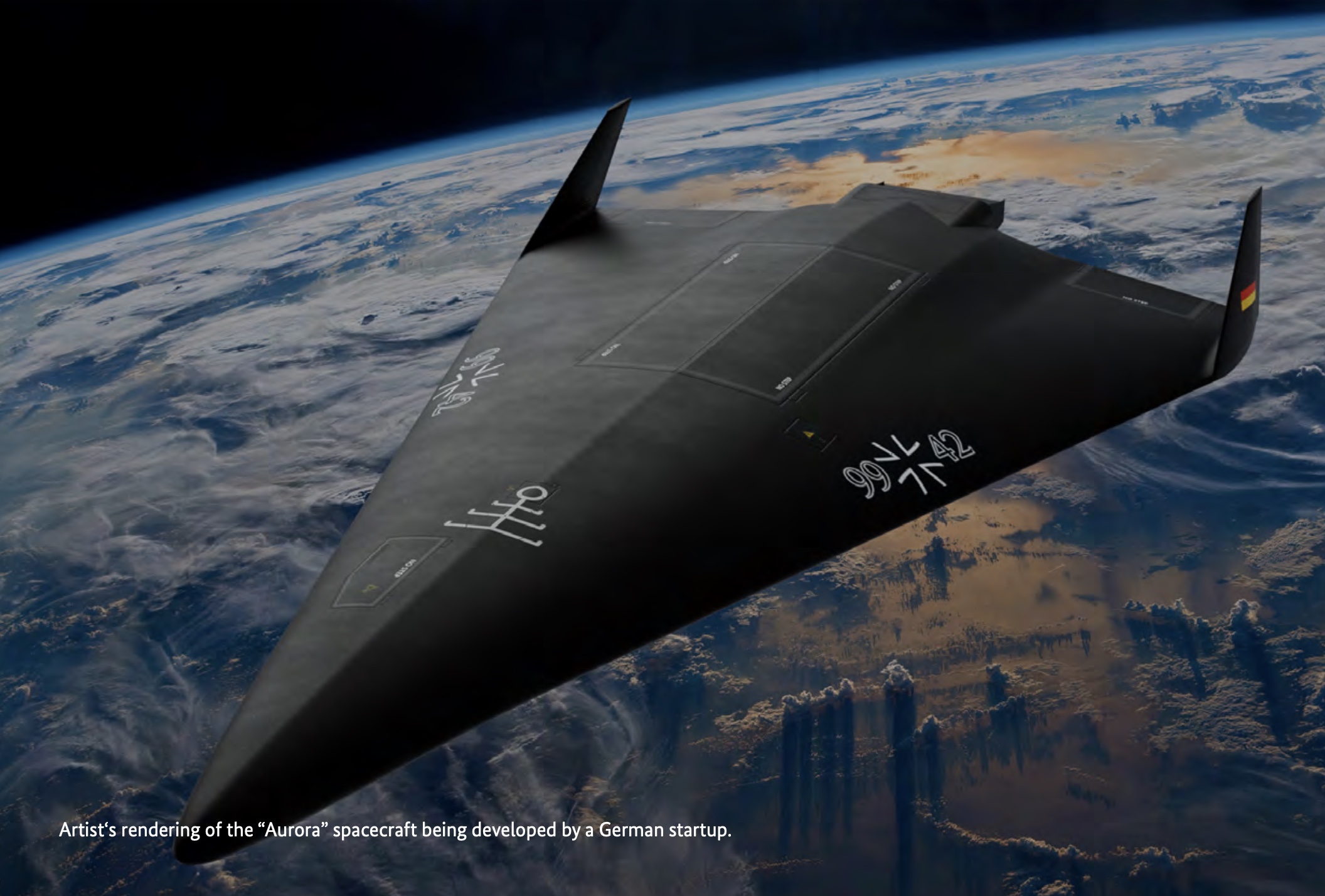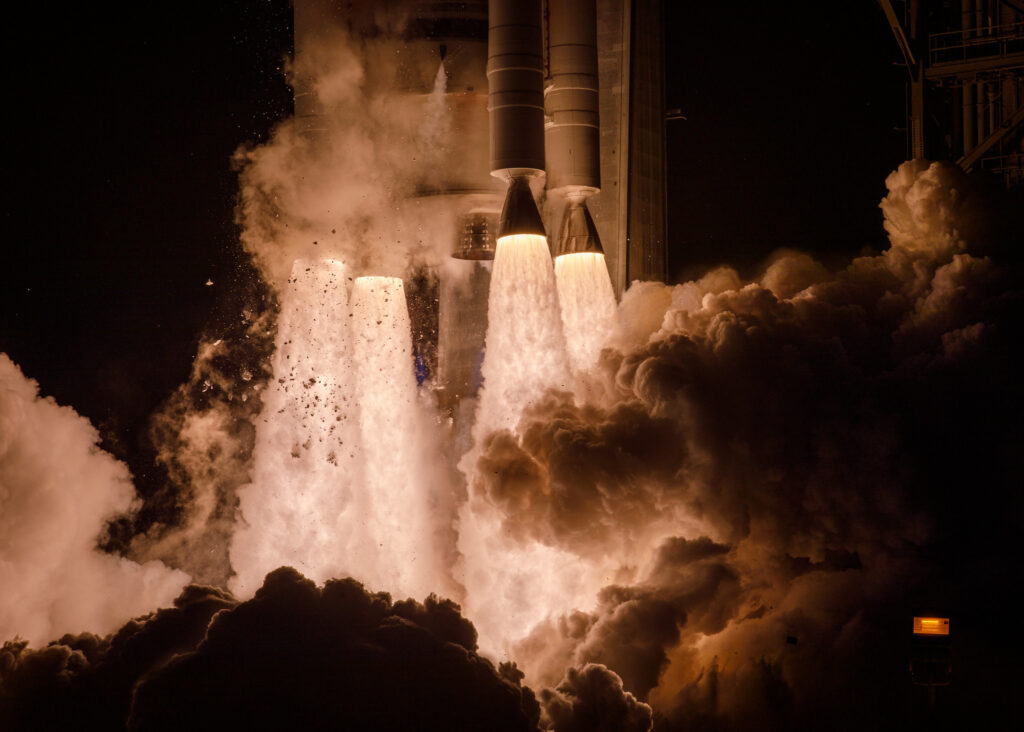Now Reading: Germany outlines military space priorities in new strategy
-
01
Germany outlines military space priorities in new strategy
Germany outlines military space priorities in new strategy


BREMEN, Germany — A new German military space policy outlines the ambitions the country has fueled by tens of billions of euros of new spending over the next several years.
The German defense ministry released Nov. 19 its Space Safety and Security Strategy, which outlines the government’s changing views on national security space and plans to invest in new defensive and potentially offensive space capabilities.
“The aim of this strategy is to ensure and secure Germany’s long-term ability to act in space – in both the civilian and military sectors – in times of peace, crises and a state of defence,” states the report’s foreword, written jointly by Boris Pistorius, German’s defense minister, and Johann Wadephul, the country’s foreign affairs minister.
“This Space Safety and Security Strategy forms an important part of Germany’s efforts to safeguard its interests and consolidate its position as a responsible actor in space,” they added.
The strategy comes weeks after Pistorius announced Germany would invest 35 billion euros ($41 billion) in military space programs over the next five years, a major increase. His announcement, though, did not provide details on how that money would be spent.
The strategy itself does not discuss specific funding levels, but does highlight priorities. The report outlines three “strategic action areas” to identify risks and threats and options to respond to them, promotion of international cooperation and a sustainable order in space, and strengthening defense capabilities for deterrence and resilience.
Those three areas have a combined 65 tasks on topics ranging from policies to technology development. The report does not mention specific schedules for those tasks or, where relevant, funding requirements.
It does, though, help identify issues that may be a priority for funding. One example is space access, where the report calls for increased European support for both small and large launch vehicles.
“In the medium term, ESA should strive to develop European launch systems capable of high rates in all payload classes to provide all users with flexible access to space for highly agile mission profiles,” it states. “To this end, we are advocating the further development of the European Launcher Challenge so that, in the medium and long term, several competitive European heavy-lift launchers will ensure Europe’s independent access even to cislunar space.”
Two German companies, Isar Aerospace and Rocket Factory Augsburg, are among the five “preselected challengers” in the European Launch Challenge, pending funding provided by ESA member states at the impending ministerial conference. The German military may provide some funding to support those two companies in the program.
The report leans into more advanced technologies as well, such as spaceplanes. “They can take off from and land on conventional airfields, are reusable, produce virtually no space debris, enable faster operations than classical vehicles and cause less environmental pollution during the launch phase,” it states. The report includes an illustration of one such concept in the livery of the German military.
The military is interested in other technologies and capabilities as well, including small satellites that could be used for responsive space missions as well as improved space situational awareness.
“We are working towards military use of heavy launchers and microlaunchers, reusable spaceplanes, new propulsion technologies, on-orbit logistics, cislunar space and multifunctional large satellite constellations,” the report states.
The focus of the report is on depending German and allied interests, but suggests that could include counterspace activities: “We are strengthening the Bundeswehr’s ability to act in space and enabling it to limit the use of space by adversaries.”
The report comes as not just Germany but also other European nations are planning to increase spending on military space, along with plans to significantly increase the European Commission’s defense and space budget in its next seven-year budget that begins in 2028.
During a panel at Space Tech Expo Europe Nov. 19, government and industry officials cited several issues to implementing that increased spending, from bottlenecks in launch to contracting challenges.
“What we need is a clear strategy in Europe and also on the national side,” said Wolfgang Duerr, vice president and head of global business for institutional space at Airbus Defence and Space, “also backed with budget lines we need to invest in the long term.”
It also requires a mindset change. “Perhaps until about two years ago, this was not a topic that people were prepared to talk about,” said Stewart Hall, commercial director at Telespazio Germany. “It’s quite difficult to talk about effectively weaponizing space as the same time as one is positioning to support the continued peaceful uses of space.”
European space companies that have primarily focused on civil and commercial space activities will need to also start thinking about defense, said Marco Fuchs, chief executive of OHB, during another conference session Nov. 18. “The space industry in Europe is traditionally civilian,” he said, mentioning the hundreds of European companies exhibiting at the event. “You see a tradition of agency business, commercial business, scientific.”
“This will obviously in the next couple of years change,” he said. “You will see more defense, and it will be a little bit like we are used to seeing when we go conferences and space shows in the U.S.: much more defense and a much stronger military presence. This will also be the future here.”
Stay Informed With the Latest & Most Important News
Previous Post
Next Post
-
 01Two Black Holes Observed Circling Each Other for the First Time
01Two Black Holes Observed Circling Each Other for the First Time -
 02From Polymerization-Enabled Folding and Assembly to Chemical Evolution: Key Processes for Emergence of Functional Polymers in the Origin of Life
02From Polymerization-Enabled Folding and Assembly to Chemical Evolution: Key Processes for Emergence of Functional Polymers in the Origin of Life -
 03Astronomy 101: From the Sun and Moon to Wormholes and Warp Drive, Key Theories, Discoveries, and Facts about the Universe (The Adams 101 Series)
03Astronomy 101: From the Sun and Moon to Wormholes and Warp Drive, Key Theories, Discoveries, and Facts about the Universe (The Adams 101 Series) -
 04True Anomaly hires former York Space executive as chief operating officer
04True Anomaly hires former York Space executive as chief operating officer -
 05Φsat-2 begins science phase for AI Earth images
05Φsat-2 begins science phase for AI Earth images -
 06Hurricane forecasters are losing 3 key satellites ahead of peak storm season − a meteorologist explains why it matters
06Hurricane forecasters are losing 3 key satellites ahead of peak storm season − a meteorologist explains why it matters -
 07Binary star systems are complex astronomical objects − a new AI approach could pin down their properties quickly
07Binary star systems are complex astronomical objects − a new AI approach could pin down their properties quickly




















